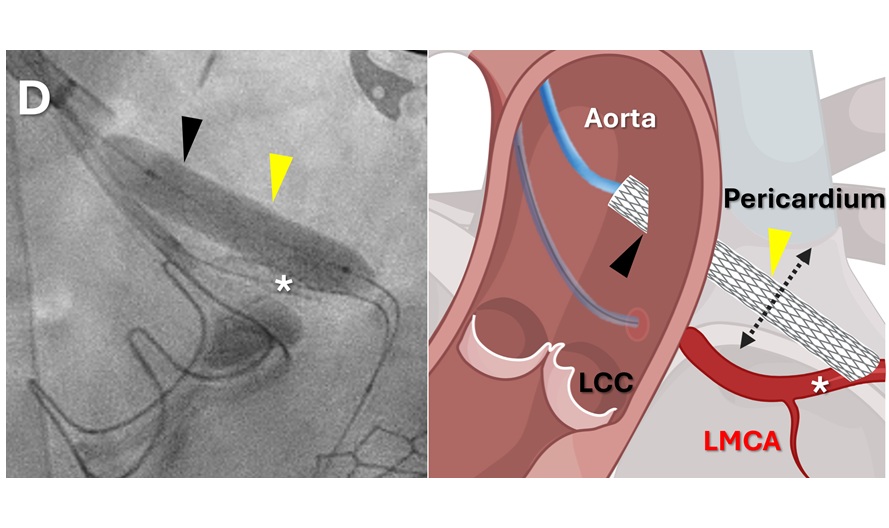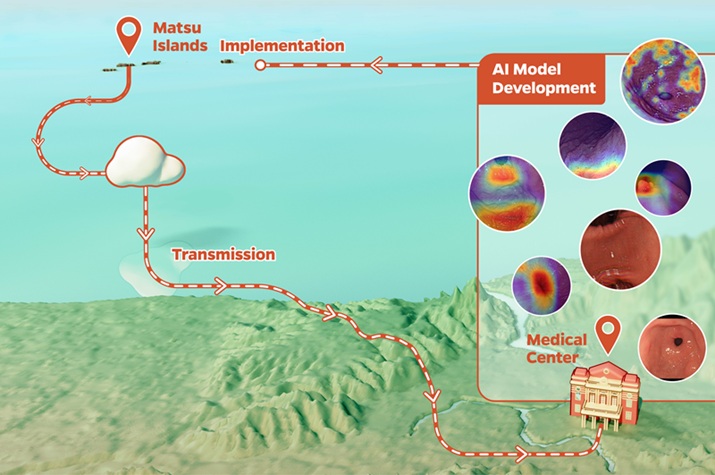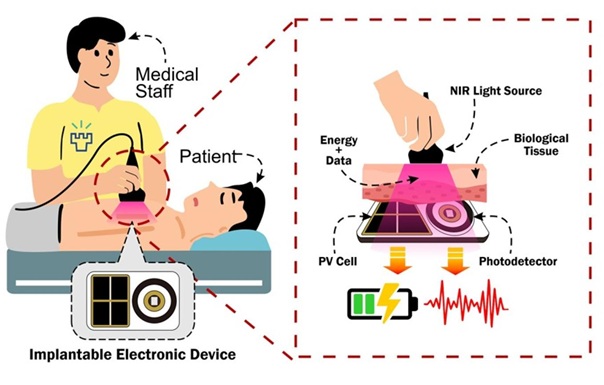AI Tool Helps Identify Heart Failure Risk in Diabetes Patients
|
By HospiMedica International staff writers Posted on 25 Oct 2024 |

Diabetic cardiomyopathy is a heart condition marked by abnormal changes in the structure and function of the heart, which increases the risk of heart failure in patients. Defining this condition has been challenging due to its asymptomatic early stages and the varied effects it can have on the heart. Machine learning has emerged as a tool to identify high-risk patients, potentially providing a more nuanced approach compared to traditional diagnostic methods. Researchers have now created a machine learning model capable of identifying patients with diabetic cardiomyopathy. The findings, published in the European Journal of Heart Failure, present a data-driven strategy to detect a high-risk diabetic cardiomyopathy phenotype, facilitating early interventions that could help prevent heart failure in this vulnerable group.
Phenotypes refer to the observable physical characteristics of individuals that confer specific biological traits. Researchers at UT Southwestern Medical Center (Dallas, TX, USA) analyzed data from the Atherosclerosis Risk in Communities cohort, which consisted of over 1,000 participants with diabetes but no prior history of cardiovascular disease. By examining a set of 25 echocardiographic parameters and cardiac biomarkers, the team identified three patient subgroups. One of these subgroups, comprising 27% of the cohort, was classified as the high-risk phenotype. Patients in this group showed significantly elevated levels of NT-proBNP, a biomarker associated with heart stress, along with abnormal heart remodeling features such as increased left ventricular mass and impaired diastolic function. Notably, the five-year incidence of heart failure in this subgroup was 12.1%, which was considerably higher than that in the other groups.
Following these findings, the researchers developed a deep neural network classifier to identify diabetic cardiomyopathy. When validated on additional cohorts, the model detected between 16% and 29% of diabetic patients as having the high-risk phenotype. These patients consistently displayed a higher incidence of heart failure. Clinically, this model could assist in targeting intensive preventive therapies, such as SGLT2 inhibitors, which are medications used to manage Type 2 diabetes, to those patients who are most likely to benefit. It may also enhance clinical trials focused on heart failure prevention strategies in diabetic patients. By offering a new method to identify individuals at risk for heart failure, the model could enable earlier and more proactive interventions, thereby improving patient outcomes and influencing future research in cardiovascular care.
“This research is noteworthy because it uses machine learning to provide a comprehensive characterization of diabetic cardiomyopathy – a condition that has lacked a consensus definition – and identifies a high-risk phenotype that could guide more targeted heart failure prevention strategies in patients with diabetes,” said senior author Ambarish Pandey, M.D., Associate Professor of Internal Medicine in the Division of Cardiology at UT Southwestern. “This builds on our previous work that evaluated the prevalence and prognostic implications of diabetic cardiomyopathy in community-dwelling adults. It extends those efforts by using machine learning to identify a more specific high-risk cardiomyopathy phenotype.”
Channels
Surgical Techniques
view channel
Minimally Invasive Coronary Artery Bypass Method Offers Safer Alternative to Open-Heart Surgery
Coronary artery obstruction is a rare but often fatal complication of heart-valve replacement, particularly in patients with complex anatomy or prior cardiac interventions. In such cases, traditional open-heart... Read more
Injectable Breast ‘Implant’ Offers Alternative to Traditional Surgeries
Breast cancer surgery can require the removal of part or all of the breast, leaving patients with difficult decisions about reconstruction. Current reconstructive options often rely on prosthetic implants... Read morePatient Care
view channel
Revolutionary Automatic IV-Line Flushing Device to Enhance Infusion Care
More than 80% of in-hospital patients receive intravenous (IV) therapy. Every dose of IV medicine delivered in a small volume (<250 mL) infusion bag should be followed by subsequent flushing to ensure... Read more
VR Training Tool Combats Contamination of Portable Medical Equipment
Healthcare-associated infections (HAIs) impact one in every 31 patients, cause nearly 100,000 deaths each year, and cost USD 28.4 billion in direct medical expenses. Notably, up to 75% of these infections... Read more
Portable Biosensor Platform to Reduce Hospital-Acquired Infections
Approximately 4 million patients in the European Union acquire healthcare-associated infections (HAIs) or nosocomial infections each year, with around 37,000 deaths directly resulting from these infections,... Read moreFirst-Of-Its-Kind Portable Germicidal Light Technology Disinfects High-Touch Clinical Surfaces in Seconds
Reducing healthcare-acquired infections (HAIs) remains a pressing issue within global healthcare systems. In the United States alone, 1.7 million patients contract HAIs annually, leading to approximately... Read moreHealth IT
view channel
EMR-Based Tool Predicts Graft Failure After Kidney Transplant
Kidney transplantation offers patients with end-stage kidney disease longer survival and better quality of life than dialysis, yet graft failure remains a major challenge. Although a successful transplant... Read more
Printable Molecule-Selective Nanoparticles Enable Mass Production of Wearable Biosensors
The future of medicine is likely to focus on the personalization of healthcare—understanding exactly what an individual requires and delivering the appropriate combination of nutrients, metabolites, and... Read moreBusiness
view channel
Philips and Masimo Partner to Advance Patient Monitoring Measurement Technologies
Royal Philips (Amsterdam, Netherlands) and Masimo (Irvine, California, USA) have renewed their multi-year strategic collaboration, combining Philips’ expertise in patient monitoring with Masimo’s noninvasive... Read more
B. Braun Acquires Digital Microsurgery Company True Digital Surgery
The high-end microsurgery market in neurosurgery, spine, and ENT is undergoing a significant transformation. Traditional analog microscopes are giving way to digital exoscopes, which provide improved visualization,... Read more
CMEF 2025 to Promote Holistic and High-Quality Development of Medical and Health Industry
The 92nd China International Medical Equipment Fair (CMEF 2025) Autumn Exhibition is scheduled to be held from September 26 to 29 at the China Import and Export Fair Complex (Canton Fair Complex) in Guangzhou.... Read more















